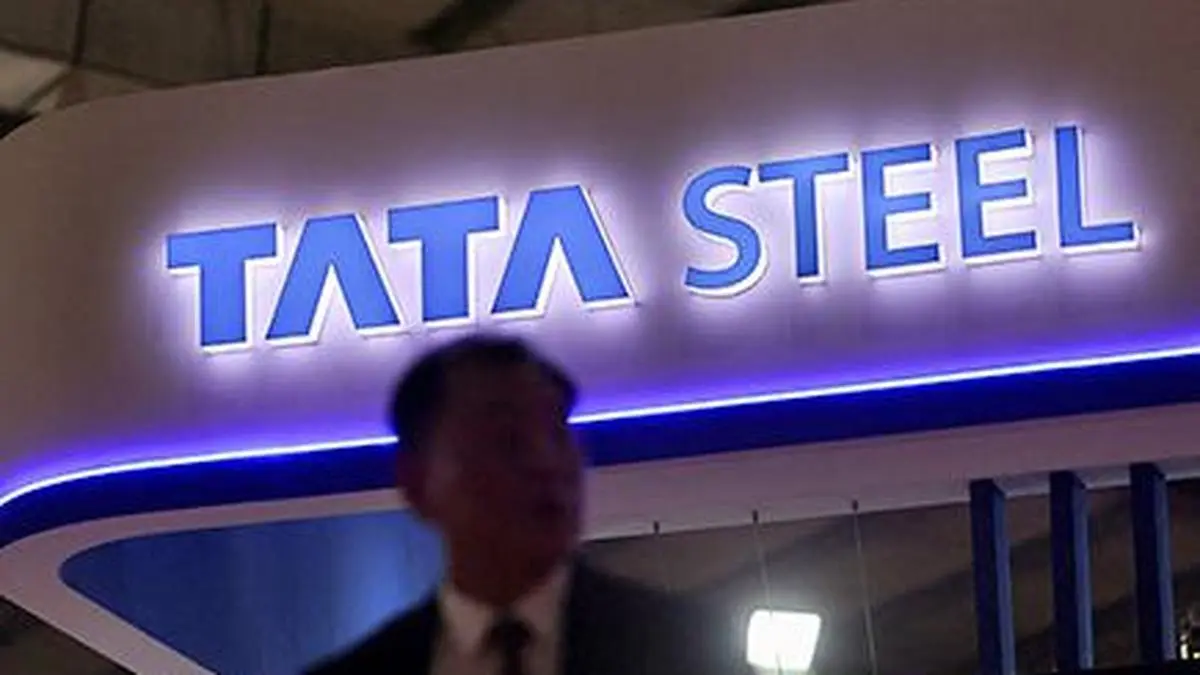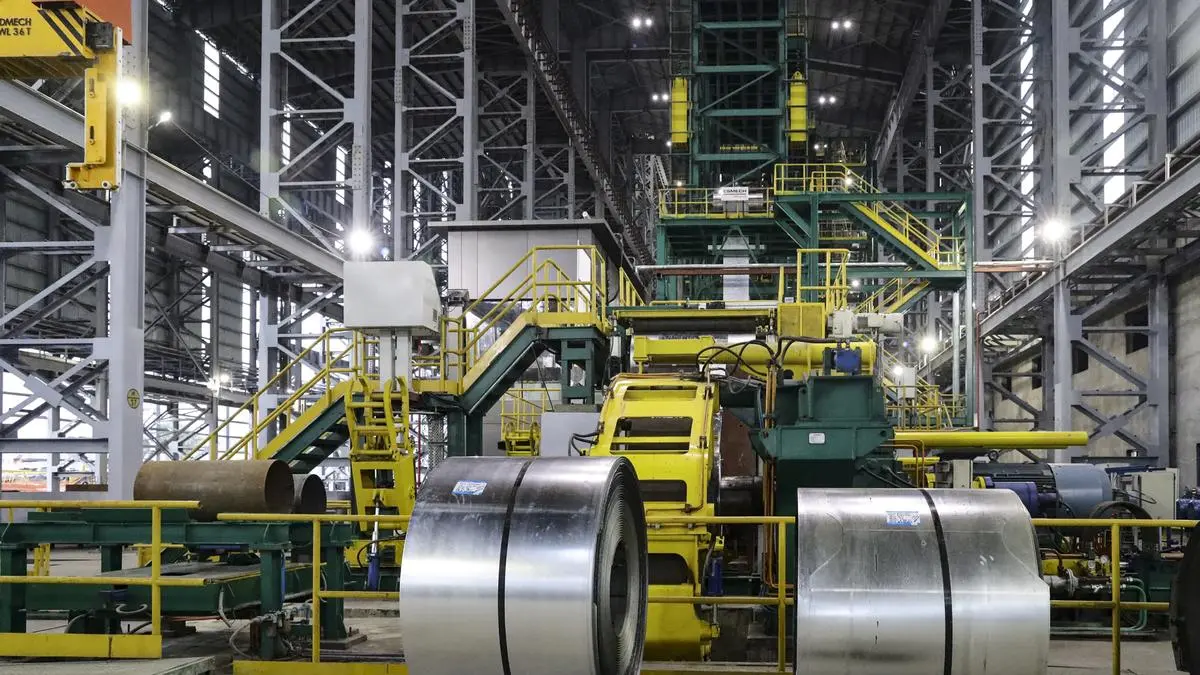Latest Sectors News

Dividend Stocks: Companies such as Sun Pharmaceutical Industries, JSW Steel, Pfizer, Shriram Finance and others will trade ex-dividend in the coming week, and Wipro is declaring a bonus issue. View More

In 2025, 70% of mainboard IPOs in India are trading above their issue prices, with stocks like Quality Power and Quadrant Future Tek delivering stellar gains. Despite fewer listings and lower fundraising, investor interest remains strong in quality offerings, while large IPOs like HDB Financial and Hexaware also performed well. View More
As of July 2025, 26 mainboard IPOs have hit the Indian stock exchanges, painting a mixed yet promising picture of the primary market. Among these 26 IPOs, approximately 18 (nearly 70%) are trading above their issue prices, highlighting solid post-listing momentum. Delving deeper, 12 of these have posted double-digit gains, reinforcing the narrative that investors are favouring fundamentally strong and well-priced offerings. Adding to the strength of the debut trend, around 20 IPOs opened at a premium, suggesting continued demand on listing day despite broader market caution. Overall, the 2025 IPO batch may be smaller, but for discerning investors, it's proving to be rich in opportunity and returns. Among the standout performers, Quality Power Electrical Equipments has emerged as the most remarkable. Despite listing at a 9% discount to its issue price of Rs 425 on February 24, the stock has delivered a massive 75% gain, currently trading at Rs 737. With an issue size of Rs 858 crore, the company has become a major wealth creator for IPO subscribers. Another big winner is Quadrant Future Tek Limited , which was listed on January 14, 2025, with an issue size of Rs 290 crore. The stock made an impressive debut with a 53% premium and is now trading approximately 63% above its issue price, cementing its position as the second-best-performing IPO of the year. Other IPOs that have registered over 20% gains from their respective issue prices include: Scoda Tubes, Ellenbarrie Industrial Gases, Prostarm Info Systems, Sambhv Steel Tubes, Hexaware Technologies , Standard Glass Lining Technology, and Globe Civil Projects. These listings reflect continued investor appetite for niche and mid-sized companies with strong growth stories. Live Events Underperformers: However, not all IPOs have managed to impress. A few have seen sharp declines post-listing. Stocks such as Arisinfra Solutions , Capital Infra Trust, and Indo Farm Equipment have dropped over 20% from their respective issue prices. The case of Indo Farm Equipment is particularly noteworthy—it was listed with an initial premium of nearly 30%, but failed to maintain momentum, resulting in significant losses for investors who held onto their allotment. Big Ticket Offerings: Despite the relatively lower volume of listings, a few large-cap IPOs dominated the fundraising charts. Leading the pack is HDB Financial Services Ltd , which went public on July 2, 2025, raising a whopping Rs 12,500 crore—the largest IPO of the year. The stock listed with a 14% premium at Rs 841 and has since climbed to Rs 865, delivering a 17% gain from its issue price of Rs 740. Also read: VRRR auction draws robust response amid surplus liquidity in the system Another major offering was from Hexaware Technologies, which raised Rs 8,759 crore. The stock debuted with an 8% premium and is currently trading at Rs 867, marking a 23% return from its issue price of Rs 708. Fundraising Overview: While individual IPO returns were encouraging, the total fundraising activity in 2025 has seen a significant dip. So far, companies have raised Rs 45,375 crore via IPOs, which is substantially lower than the Rs 1.60 lakh crore raised in Calendar Year 2024. The sharp decline highlights growing caution among issuers, likely influenced by macroeconomic uncertainty, volatile market conditions, and tighter investor scrutiny. Also read: How Jane Street targeted over 40 Nifty, Nifty Bank stocks in expiry-day trades A Mixed Year with Positive Takeaways: In summary, CY2025 has been a mixed year for the IPO market. On the one hand, investors have benefited from strong post-listing gains in a majority of IPOs, reinforcing the importance of quality selection. On the other hand, the marked slowdown in capital mobilisation signals hesitancy among large issuers. As market dynamics evolve, the second half of 2025 will be crucial in determining whether this IPO revival sustains or cools further. For now, quality-driven investing and cautious optimism remain the key themes in India’s IPO landscape. (Disclaimer: Recommendations, suggestions, views and opinions given by the experts are their own. These do not represent the views of Economic Times) (You can now subscribe to our ETMarkets WhatsApp channel) (You can now subscribe to our ETMarkets WhatsApp channel)

Tata Steel faces a Rs 1,902 crore demand notice from the Deputy Director of Mines, Jajpur, concerning an alleged shortfall in mineral dispatch from its Sukinda Chromite Block in Odisha. The demand, linked to a revised assessment under the Mine Development and Production Agreement, is contested by Tata Steel. View More

The notice received on July 3 alleges violation of Rule 12A of the Minerals (Other than Atomic and Hydrocarbon Energy Minerals) Concession Rules, 2016, and consequent appropriation of performance security, says the company View More

Tata Steel faces a demand of Rs 1,902.72 crore from Odisha's mining authorities due to an alleged shortfall in mineral dispatch from its Sukinda Chromite Block. The demand, based on a revised assessment, pertains to the period from July 2023 to July 2024. Tata Steel contests the claim, asserting it lacks justification and plans to pursue legal remedies. View More
Tata Steel received a demand notice from the Deputy Director of Mines, Jajpur, Odisha, seeking Rs 1,902.72 crore over an alleged shortfall in mineral dispatch from its Sukinda Chromite Block during the fourth year of its mining agreement, the company said in an exchange filing. The demand, issued on July 3, stems from a revised assessment based on the average sale price declared by the Indian Bureau of Mines. Authorities have invoked Rule 12A of the Minerals (Other than Atomic and Hydrocarbon Energy Minerals) Concession Rules, 2016, and have moved to appropriate the company’s performance security. The shortfall reportedly occurred during the period from July 23, 2023, to July 22, 2024, under the Mine Development and Production Agreement (MDPA) signed for the Sukinda block. Tata Steel has contested the claim, stating that the demand lacks “justification and substantive basis,” and said it will explore legal remedies before the appropriate forums. (You can now subscribe to our Economic Times WhatsApp channel) (You can now subscribe to our Economic Times WhatsApp channel)

Steel Authority of India Limited has opened a representative office in Dubai. The aim is to boost steel exports and strengthen trade ties. The office will serve as a hub for the Middle East and North Africa region. Union Minister H D Kumaraswamy inaugurated the office. SAIL sources limestone from Stevin Rock LLC. View More
State-owned steel maker SAIL has set up an office in Dubai with an objective to tap opportunities in the emerging markets, an official statement said on Friday. The company is the third public sector unit under the Ministry of Steel to have opened its overseas office in Dubai. SAIL has inaugurated its Representative Office in Dubai. It is SAIL's first international office in the Middle East and marks a significant step in its global expansion strategy, the ministry said. The office was inaugurated by Union Minister of Steel and Heavy Industries H D Kumaraswamy on Thursday in the presence of the Consul General of India to Dubai Satish Kumar Sivan, SAIL CMD Amarendu Prakash and other senior ministry officials. Positioned as a strategic hub, the Dubai office will help SAIL boost steel exports, deepen industry linkages, and reinforce India-UAE trade ties, the ministry said. Live Events Dubai's role as a gateway to the Middle East and North Africa (MENA) region and its investor-friendly environment make it an ideal base for expanding into emerging markets. It marks a significant milestone in SAIL's evolution into a globally competitive steelmaker and reflects India's growing profile in the international steel arena, the statement said. As per the steel ministry, SAIL, one of India's largest steel producers, sources approximately 2.5 million tonnes of limestone annually from RAK-based Stevin Rock LLC, with future procurement set to rise as part of SAIL's capacity expansion from 20 to 35 million tonnes per annum. Earlier this week, the minister inaugurated offices of NMDC and MECON in Dubai. Steel Authority of India Ltd (SAIL) is among India's top four steel manufacturing players having a capacity of over 20 million tonnes per annum. (You can now subscribe to our Economic Times WhatsApp channel) (You can now subscribe to our Economic Times WhatsApp channel)

India is taking steps to boost copper production, inviting foreign companies to establish smelters and refineries in exchange for investments in overseas mining. Facing potential reliance on imports for up to 97% of copper concentrates by 2047, India aims to diversify supply sources and acquire foreign assets. View More
India on Friday unveiled a series of steps to increase copper output , including encouraging foreign firms to set up smelters and refineries in the country in exchange for state-owned firms investing in their overseas mining operations. The government policy document, parts of which were first reported by Reuters last week, said India - the world's second-biggest refined copper importer - may have to import 91%-97% of its copper concentrates by 2047. The country's copper imports rose 4% to 1.2 million metric tons in fiscal 2025. Demand is expected to climb to 3-3.3 million metric tons by 2030 and 8.9-9.8 million metric tons by 2047, the document said. The document, which called for supply diversification and foreign asset acquisitions, also confirmed that India plans to promote investments by foreign companies, including Chile 's state-owned Codelco and Australian miner BHP, as part of its long-term focus by 2047. Reuters had first reported, quoting sources with knowledge of the matter and the document, that India could likely approach the two companies to set up domestic smelters, refineries and other downstream industries. Live Events Indian companies should also consider investing overseas to secure a steady supply chain and manage supply disruptions, the document added. India plans to provide financial support such as capital investment subsidies and customs duty exemption on imported plants and machineries for building 4-5 million metric tons of new smelting and refining capacity in the long-run, the document said. It may also consider providing financial support to scrap processing facilities. Few viable options Despite an estimated 12.2 million metric tons of copper resources, only 18% are classified as reserves, highlighting limited domestic availability, according to the document. Issues such as "resource nationalism, geopolitical tensions, declining ore grades," and a persistent lack of investment globally could "leave India with few viable options to source copper, even from major exporters like Australia, Chile, Peru and Zambia." India plans to include a chapter on copper in the ongoing free trade pact talks with Chile and Peru to secure a fixed quantity of copper concentrate, the document said. "Tightening copper supplies from key exporters like Indonesia and Panama have reduced India's sourcing options," the document said. Additionally, the Indian government released a document outlining plans to boost aluminium output and said domestic demand is expected at 8.5 million metric tons by fiscal 2030. (You can now subscribe to our Economic Times WhatsApp channel) (You can now subscribe to our Economic Times WhatsApp channel)
Analysts see the signals from China as a likely precursor for supply-side reform 2.0; futures climb above $96 a tonne View More

Spread across 104.84 hectares, this mineral resource significantly enhances Jindal Steel's raw material security View More
